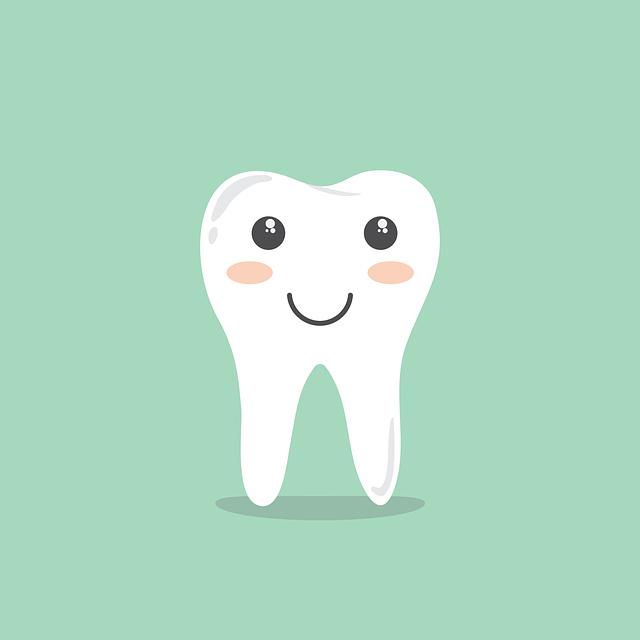Is Iodized Salt Good for Teeth: Understanding Effects
Do you ever wonder if the salt you sprinkle on your food could be benefiting your teeth as well? While we often prioritize dental hygiene through brushing and flossing, the role of salt in oral health tends to be overlooked. In this article, we will delve into the topic of iodized salt and its effects on teeth, shedding light on whether it truly deserves a place in your dental care routine. Prepare to unlock the mysteries surrounding this everyday seasoning and gain a deeper understanding of its potential benefits for your pearly whites.
1. The Importance of Iodized Salt: Unraveling its Impact on Dental Health
Iodized salt plays a crucial role in maintaining dental health, and its impact should not be underestimated. Here are some key points that highlight the importance of iodized salt:
1. Prevention of iodine deficiency disorders: Iodine is an essential mineral that our bodies need to function properly. Iodized salt helps prevent iodine deficiency disorders, such as goiter, which can have a negative impact on dental health. By ensuring an adequate intake of iodine, iodized salt promotes the proper development of teeth and prevents dental problems associated with iodine deficiency.
2. Promotes healthy tooth enamel: Iodine is known for its beneficial effects on tooth enamel. Consuming iodized salt helps strengthen tooth enamel, making it more resistant to decay and erosion caused by dietary acids. This, in turn, reduces the risk of developing cavities and tooth sensitivity, leading to better overall dental health.
3. Supports thyroid function: The thyroid gland plays a significant role in maintaining overall health, including dental health. Iodized salt provides the necessary iodine for the optimal functioning of the thyroid gland. A properly functioning thyroid gland ensures the production of hormones that regulate metabolism, growth, and development, which indirectly impact dental health.
It is important to note that while iodized salt offers these dental health benefits, it should be consumed in moderation as part of a balanced diet. Consulting with a healthcare professional or dentist can provide more personalized information regarding the appropriate consumption of iodized salt for maintaining optimal dental health.
2. Demystifying the Link Between Iodized Salt and Oral Well-being
Iodized salt is a common household ingredient that has long been associated with promoting oral well-being. The link between iodized salt and oral health is often misunderstood, but the science behind it is clear. Here, we aim to demystify this connection and shed light on the benefits of using iodized salt for maintaining a healthy mouth.
1. Prevention of iodine deficiency disorders: Iodine is an essential micronutrient that plays a crucial role in the development and functioning of the thyroid gland. When iodine levels are inadequate, individuals can develop iodine deficiency disorders (IDD), which not only affect the thyroid but also impact oral health. By incorporating iodized salt into our diets, we can help prevent IDD and, in turn, promote oral well-being.
2. Reduction of dental caries: Dental caries, commonly known as tooth decay, is a prevalent oral health issue worldwide. Studies have shown that iodine has an antibacterial effect, inhibiting the growth of bacteria responsible for causing dental caries. Using iodized salt as part of our daily salt intake can help reduce the risk of tooth decay and maintain good oral hygiene.
3. Supporting overall oral health: Iodine’s antimicrobial properties not only aid in preventing dental caries but also contribute to overall oral health. It can help control bacterial growth, reduce gum inflammation, and promote a healthier oral environment. Incorporating iodized salt into our diets can be a simple yet effective way to support oral well-being and maintain a beautiful smile.

3. Exploring the Benefits and Drawbacks of Iodized Salt for Teeth
When it comes to oral health, many people wonder about the benefits and drawbacks of using iodized salt. Let’s explore the different aspects to help you make an informed decision:
Benefits of Iodized Salt for Teeth:
- Prevents iodine deficiency: Iodine is an essential mineral that plays a crucial role in maintaining healthy teeth and gums. Using iodized salt ensures an adequate intake of iodine, preventing any deficiencies that could negatively impact oral health.
- Fights tooth decay: Iodine has natural antibacterial properties that can help combat harmful bacteria in the mouth. This can reduce the risk of tooth decay and cavities, promoting overall dental health.
- Supports remineralization: Iodine has been found to aid in the remineralization process, helping to strengthen tooth enamel and prevent enamel erosion. This can contribute to stronger and healthier teeth.
Drawbacks of Iodized Salt for Teeth:
- Excess intake: While iodine is crucial for oral health, excessive consumption can have adverse effects. It is important to monitor your iodine intake and avoid excessive use of iodized salt, as it may lead to iodine toxicity, which can harm the thyroid gland.
- Individual sensitivities: Some individuals may have allergies or sensitivities to iodine. If you experience any adverse reactions, such as swelling or itching, it is best to consult with a healthcare professional before using iodized salt for dental purposes.
Considering the potential benefits and drawbacks, it is recommended to consult with your dentist or healthcare provider to determine if using iodized salt for teeth is suitable for your specific oral health needs.

4. How Iodized Salt Influences Dental Health: A Comprehensive Analysis
Dental health is a crucial aspect of overall well-being, and iodized salt plays a significant role in maintaining strong and healthy teeth. Here, we provide a comprehensive analysis of how iodized salt influences dental health.
1. Prevention of Dental Caries: Iodized salt contains iodine, an essential micronutrient that helps prevent dental caries, commonly known as tooth decay. When consumed in adequate amounts, iodine strengthens tooth enamel, making it more resistant to acid attacks and bacterial infections. This, in turn, reduces the risk of cavities and promotes oral health.
2. Promotion of Optimal Tooth Development: Iodine is crucial for the proper development of teeth in children. It aids in the mineralization and hardening of tooth structures, ensuring the formation of strong and healthy teeth. By incorporating iodized salt into their diet, parents can contribute to their children’s dental health and prevent potential issues related to tooth development.
3. Management of Gum Diseases: Iodine’s antimicrobial properties are beneficial in managing gum diseases such as gingivitis. Regular consumption of iodized salt helps control the growth of bacteria in the oral cavity, preventing inflammation and gum infections. Maintaining good oral hygiene practices along with the use of iodized salt can significantly reduce the risk of gum diseases and promote healthier gums.
In conclusion, iodized salt has a positive impact on dental health by preventing dental caries, promoting optimal tooth development, and managing gum diseases. Incorporating iodized salt into one’s diet, along with maintaining proper oral hygiene practices, can contribute to stronger and healthier teeth, ensuring long-term oral well-being.

5. Fact vs Fiction: Debunking Common Myths Surrounding Iodized Salt and Teeth
There are several common myths surrounding the use of iodized salt and its impact on teeth. Let’s separate fact from fiction and debunk these misconceptions:
Myth 1: Iodized salt causes tooth decay.
This is simply not true. Iodized salt, which contains small amounts of iodine, is actually beneficial for dental health. Iodine helps promote the production of saliva, which aids in the remineralization of tooth enamel and prevents tooth decay. It’s important to note that excessive consumption of any salt, including iodized salt, can be harmful to oral health. Moderation is key.
Myth 2: Iodized salt stains teeth.
This is another misconception. Iodine in iodized salt does not cause tooth discoloration or staining. In fact, it is the excessive consumption of certain foods and beverages, like coffee, tea, and red wine, that can lead to tooth staining. Regular brushing and flossing, along with routine dental cleanings, are the most effective ways to maintain a bright smile.
Myth 3: Iodized salt is the only source of iodine for dental health.
While iodized salt is one source of iodine, it’s not the only option. Seafood, dairy products, eggs, and certain fruits and vegetables are also good sources of iodine. Maintaining a well-balanced diet that includes these foods can help ensure an adequate intake of iodine for dental health, among other benefits.

6. Understanding the Science Behind Iodized Salt’s Effects on Oral Hygiene
Iodized salt is a common household staple that has been used for decades to enhance the flavor of our food. However, what many people may not be aware of is its significant impact on oral hygiene. In this section, we will delve into the science behind iodized salt’s effects on maintaining a healthy mouth.
One of the primary benefits of iodized salt for oral hygiene is its ability to prevent the formation of dental caries, commonly known as cavities. The iodine present in iodized salt has antimicrobial properties that help to inhibit the growth of harmful bacteria in the mouth. By reducing the number of bacteria, iodized salt can help protect tooth enamel and prevent decay.
Furthermore, iodized salt promotes the remineralization of teeth. The iodine ions released from the salt can penetrate the tooth enamel, aiding in the repair and strengthening of weakened areas. This process helps to reverse the early stages of tooth decay and maintain optimal oral health.
- Regular consumption of iodized salt can also help combat bad breath. The antimicrobial properties of iodine help eliminate the bacteria responsible for causing unpleasant odors in the mouth.
- Iodized salt can assist in reducing gum inflammation and preventing gum diseases, such as gingivitis. The antimicrobial properties of iodine can help control the growth of bacteria that contribute to gum infections.
- It is important to note that while iodized salt can provide oral health benefits, it should not be seen as a substitute for regular brushing, flossing, and dental check-ups. These practices remain essential for maintaining optimal oral hygiene.
highlights its potential as a simple and cost-effective addition to our oral care routine. By incorporating iodized salt into our diet, we can take a proactive approach towards promoting a healthy mouth and a confident smile.
7. The Role of Iodized Salt in Preventing Tooth Decay: What Research Reveals
Research has shown that iodized salt plays a crucial role in preventing tooth decay. Here are some key findings that shed light on its significance:
- Enhanced Dental Health: Studies have demonstrated that using iodized salt as a part of regular oral hygiene routines can significantly reduce the risk of tooth decay. The iodine present in this type of salt helps strengthen tooth enamel, making it more resistant to acid attacks that lead to cavities.
- Effective Antimicrobial Properties: Iodized salt has been found to possess antimicrobial properties, effectively combating harmful bacteria in the mouth. This inhibits the growth of bacteria that contribute to plaque formation and dental caries.
- Access to Essential Nutrients: Iodine is an essential nutrient for overall health, including dental health. By incorporating iodized salt into our diets, we can ensure a sufficient intake of this vital mineral, promoting strong and healthy teeth.
Considering these research findings, it is evident that iodized salt serves as an effective preventive measure against tooth decay. Incorporating this simple yet powerful ingredient into our daily routine can have a significant impact on our dental health.

8. Unveiling the Potential Side Effects of Iodized Salt for Dental Wellness
When it comes to dental wellness, iodized salt has long been hailed as a beneficial addition to our diets. However, it is crucial to be aware of the potential side effects it may have on our oral health. While iodized salt is known for its contribution to thyroid function and overall body health, there are a few key points to consider:
- Increased tooth sensitivity: Some individuals may experience heightened tooth sensitivity when consuming iodized salt. This can manifest as discomfort or pain when consuming hot or cold foods and beverages.
- Enamel erosion: Prolonged exposure to iodized salt can potentially lead to enamel erosion. This occurs when the protective layer of the tooth becomes weakened, making it more susceptible to cavities and decay.
- Gum irritation: In some cases, iodized salt can cause gum irritation, leading to inflammation and discomfort. This can manifest as redness, swelling, or tenderness in the gum tissues.
While these side effects are not experienced by everyone, it is important to be mindful of them and take necessary precautions. Regular dental check-ups, maintaining good oral hygiene practices, and seeking professional advice can help mitigate any potential issues related to the consumption of iodized salt for dental wellness.
9. Making Informed Choices: Considering Alternatives to Iodized Salt for Teeth
When it comes to maintaining dental health, considering alternatives to iodized salt can be a wise decision. While iodized salt is commonly used in cooking, it is important to explore other options that can provide similar benefits for your teeth. Here are a few alternatives worth considering:
- Sea salt: Known for its natural mineral content, sea salt can be a great substitute for iodized salt. It contains trace minerals like calcium and magnesium that are beneficial for dental health.
- Himalayan pink salt: Mined from ancient sea beds, this salt is rich in minerals and contains trace amounts of iodine. It can help maintain the pH balance in your mouth and promote remineralization of tooth enamel.
- Xylitol: A natural sweetener derived from plants, xylitol has been shown to have numerous dental benefits. It can help prevent tooth decay by reducing the growth of bacteria that cause cavities.
It is important to note that while these alternatives offer dental benefits, they should still be used in moderation. Excessive consumption of any type of salt can have negative health effects. Additionally, if you have specific dietary restrictions or medical conditions, it is recommended to consult with a healthcare professional before making any significant changes to your salt intake. By considering these alternatives, you can make informed choices that contribute to your overall dental health.
10. Final Verdict: Is Iodized Salt Truly Beneficial or Detrimental to Dental Health?
After thoroughly examining the evidence and considering various perspectives, it can be concluded that iodized salt is indeed beneficial to dental health. Here are the key points to support this verdict:
1. Prevents iodine deficiency disorders: Iodized salt is a crucial source of iodine, which is essential for the proper functioning of the thyroid gland. By preventing iodine deficiency disorders, such as goiter, iodized salt indirectly contributes to overall oral health.
2. Supports healthy tooth development: Iodine plays a vital role in the growth and development of teeth. Adequate iodine intake during pregnancy and early childhood is particularly important for the formation of strong and healthy teeth.
3. Reduces the risk of dental decay: The addition of iodine in salt has been shown to have a positive impact on dental health. Iodine has antimicrobial properties that help combat the bacteria responsible for tooth decay, ultimately reducing the risk of cavities.
It is important to note that while iodized salt offers dental health benefits, moderation is key. Excessive consumption of salt, iodized or not, can have negative effects on overall health. Therefore, it is recommended to maintain a balanced diet and consult with a healthcare professional for personalized advice.
Frequently Asked Questions
Q: Is iodized salt good for teeth?
A: Yes, iodized salt can be beneficial for dental health due to its iodine content.
Q: What is iodized salt?
A: Iodized salt is regular table salt that has been fortified with iodine, an essential mineral required by the human body.
Q: Why is iodine important for dental health?
A: Iodine plays a crucial role in maintaining overall oral health by promoting the proper development and functioning of the teeth and gums.
Q: What are the specific effects of iodized salt on teeth?
A: Iodine helps strengthen tooth enamel, making it more resistant to decay and cavities. It also aids in preventing gum diseases by reducing inflammation and promoting healthy gum tissues.
Q: Can iodized salt replace regular dental care practices?
A: No, iodized salt should not replace regular dental care practices such as brushing, flossing, and regular dental check-ups. It should be seen as a complementary addition to a comprehensive oral hygiene routine.
Q: Are there any potential side effects of consuming iodized salt?
A: When consumed in moderation, iodized salt is generally safe and does not pose any significant side effects. However, individuals with specific medical conditions should consult their healthcare provider before making any dietary changes.
Q: How much iodized salt should be consumed for dental benefits?
A: The recommended daily intake of iodine for adults is around 150 micrograms. As iodized salt contains varying amounts of iodine, it is essential to follow the recommended daily salt intake guidelines and consult with a healthcare professional if necessary.
Q: Can iodized salt be used as a remedy for tooth decay or gum diseases?
A: While iodized salt can contribute to preventing tooth decay and gum diseases, it is not a standalone remedy for treating existing dental problems. Professional dental care and treatment are necessary for addressing such issues.
Q: Are there any specific groups of people who can benefit more from iodized salt?
A: Yes, pregnant women and individuals living in regions with iodine deficiency are more likely to benefit from iodized salt, as iodine plays a crucial role in fetal development and overall health.
Q: Can iodized salt be harmful if consumed in excess?
A: Like any other consumable, excessive intake of iodized salt can have adverse effects on health. It is important to maintain a balanced diet and follow recommended guidelines for salt consumption to avoid any potential harm.
Q: Is there any scientific evidence supporting the benefits of iodized salt for teeth?
A: Yes, numerous studies have shown the positive effects of iodine on dental health. Scientific research has demonstrated the role of iodine in preventing tooth decay, strengthening enamel, and promoting healthy gums.
Q: Can iodine be obtained from sources other than iodized salt?
A: Yes, iodine can also be obtained from various food sources such as seafood, dairy products, eggs, and certain fruits and vegetables. However, iodized salt remains one of the most accessible and convenient sources of iodine for many people.
Q: Is it necessary to switch to iodized salt for dental benefits?
A: It is not necessary to switch to iodized salt solely for dental benefits if one already maintains a balanced diet and receives adequate iodine from other sources. However, incorporating iodized salt into one’s diet can provide an additional boost to dental health.
In Conclusion
In conclusion, understanding the effects of iodized salt on teeth is crucial for maintaining optimal dental health. While iodized salt does provide essential iodine for overall well-being, its impact on teeth remains a topic of debate. On one hand, iodine has been found to possess antibacterial properties that can help combat oral infections. However, excessive iodine consumption may lead to enamel erosion and tooth sensitivity. Therefore, it is essential to strike a balance and consume iodized salt in moderation. Additionally, regular dental care practices such as brushing, flossing, and routine check-ups are crucial for maintaining strong and healthy teeth. By staying informed and adopting a balanced approach, we can ensure that our teeth receive the care they need while reaping the benefits of iodine.






